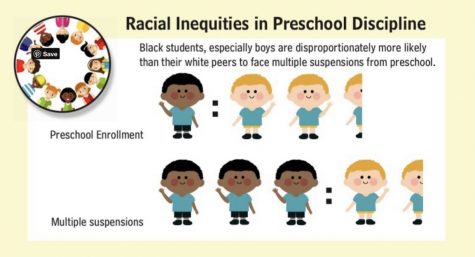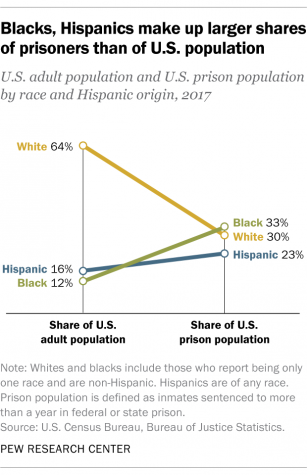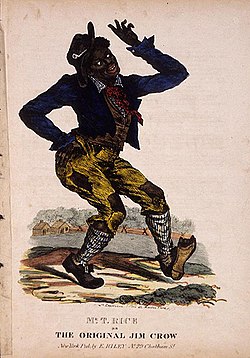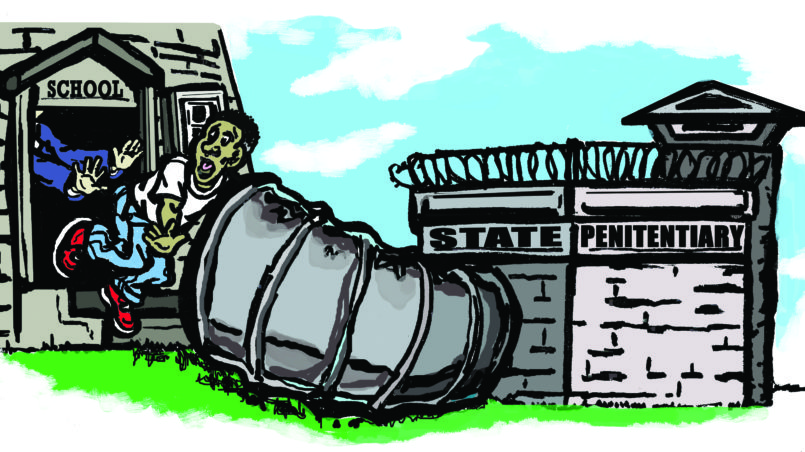Racism’s New Form
How racism is present in our school system.
February 28, 2021
February marks the start of Black History Month, an American celebration to acknowledge the successes of Black figures in society since the end of slavery. Schools take the opportunity to build lesson plans about African American life and history in efforts to include their black students and have their peers learn about their culture. In 2020, the Black Lives Matter movement brought forth intense topics that are often overlooked when regarding race such as: police brutality, racial profiling, and systematic racism in our society.
Despite the Civil Rights Act of 1964, racism still thrives in our society in forms of oppressive undertones within the structure of our school system.
Everyone in school is taught about racism, however; many are not told about the different kinds of racism such as systemic racism. Systemic racism is when systems of power like the Justice System, Education System, and Healthcare reinforce the prejudice against a race. Despite celebrating Black History Month, the education system has yet to address the racism embedded into the school curriculum. The Texas Education system reported in August 2020, that the enrollment of Hispanic, African American, and multiracial students increased while the enrollment of White students decreased. Despite this, students of color are only taught about a handful of colored people in history when talking about race in the Texas curriculum, for Black students there are Dr. Martin King Jr., Harriet Tubman, or Rosa Parks and for Hispanic students Cesar Chavez is the only person.

Compared to the trivia imposed on students to learn about their founding fathers, who all supported the institution of slavery.
In the school system, there are undertones of racism that promote implicit bias against black students following them all K-12, producing the school-to-prison pipeline. A study done by the American Psychological Association ranked the innocence of a group of children, regardless of race or age, the black children were said to be “significantly less innocent” proving that the perception of race in society dehumanizes black individuals from childhood. This kind of thinking has also infiltrated the American school system. According to The National Prevention Science Coalition, Black children only make up 19% in preschools, yet make up 47% of children suspended.  As they move to middle school and high school, these children are isolated and pushed out of education as a whole. Instead of increasing the amount of support students of minority groups receive in school, they are suspended, sent to disciplinary alternative schools, and eventually into juvenile detention.
As they move to middle school and high school, these children are isolated and pushed out of education as a whole. Instead of increasing the amount of support students of minority groups receive in school, they are suspended, sent to disciplinary alternative schools, and eventually into juvenile detention.
Pew Research Center found that despite African Americans making up 12% of the U.S. adult population, 33% made up the prison population. The probability of African Americans being incarcerated continues to increase. In 2015 the The Sentencing Project reported the likelihood of incarceration being five times more likely than white Americans compared to four times in 2001. The continuous punishment of Black students keeps behind in their education preventing their ability to develop skills to survive the real world. After their first run in with the law the chance of graduation is reduced to 13% according to The Spotlight, due to the lack of resources they receive as they are now classified as a “trouble student.” This kind of treatment ostracizes the youth, thus convincing them to drop out. With no high school diploma and record(s) of arrest, it is harder for young minorities to find employment in the real world, making them more susceptible to fall into a life of crime.
The continuous punishment of Black students keeps behind in their education preventing their ability to develop skills to survive the real world. After their first run in with the law the chance of graduation is reduced to 13% according to The Spotlight, due to the lack of resources they receive as they are now classified as a “trouble student.” This kind of treatment ostracizes the youth, thus convincing them to drop out. With no high school diploma and record(s) of arrest, it is harder for young minorities to find employment in the real world, making them more susceptible to fall into a life of crime.
It is easy to argue that these “criminals” should be punished for their crimes, but due to the dehumanization of black people due to the stereotypes that they are aggressive, drug dealers, or lazy keeps them oppressed.  These ideas are present within the justice and education system, The Hamilton Project reported that the chance of incarceration for African-American dropouts is 70%.
These ideas are present within the justice and education system, The Hamilton Project reported that the chance of incarceration for African-American dropouts is 70%.
If schools want to honor Black history, it is crucial for them to break the cycle of oppression on the African American community within the education system. This is achievable by increasing the resources for minority students, hiring a staff that represents their students, and making black history an everyday part of the curriculum, not just a month.


Melanie Verdi • Feb 28, 2021 at 7:52 pm
Odalis, this was such a great read. Keep sharing your perspectives!